Samsung Electronics unveiled a record number of new products at Galaxy Unpacked 2024 on July 10 including the Galaxy Z Fold6, Galaxy Z Flip6, Galaxy Watch Ultra, Galaxy Watch7, Galaxy Ring and Galaxy Buds3 series. Now, the Galaxy AI ecosystem is stronger than ever with the expansion to foldables and wearables.

▲ 3 Mazarium in Paris
On June 11, Samsung underscored its commitment to mobile AI with a panel discussion called Salon d’AI at 3 Mazarium — a modern convention space characterized by traditional Parisian architecture. Industry leaders and partners from Google, Qualcomm Technologies, the Organization for Economic Co-operation and Development (OECD) and others joined Samsung on stage for a lively discussion about the future of AI.
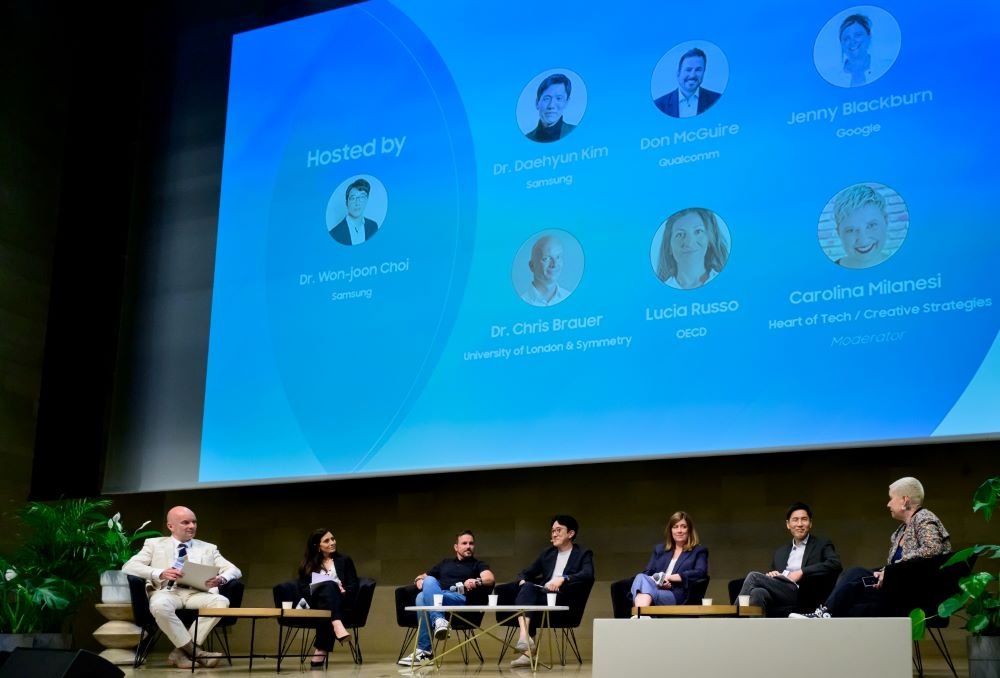
▲ (From left to right) Dr. Chris Brauer, Lucia Russo, Don McGuire, Won-joon Choi, Jenny Blackburn, Daehyun Kim and moderator Carolina Milanesi
More than 300 media and attendees packed the auditorium to hear what the experts had to say. At a time when advancements in AI are set to impact lives on an unprecedented scale, Samsung Newsroom reflected on some valuable insights from participants at Salon d’AI.
A Human-Centric Approach to Mobile AI
Won-joon Choi, Executive Vice President and Head of the Mobile R&D Office, Mobile eXperience Business at Samsung Electronics, took to the stage and started the panel.
“With the industry leaders and decision makers on stage today, let’s talk about the future of mobile AI based on consumer experiences, the importance of responsible AI development and the critical role of collaboration in shaping AI for humanity,” he said.
Audience members listened attentively, taking notes on their laptops and smartphones.

▲ Won-joon Choi from Samsung Electronics
Moderator Carolina Milanesi, CEO and Founder of Heart of Tech and President of Creative Strategies, initiated the discussion by asking panelists to share their views on the development of mobile AI.
“When we first developed Galaxy AI, we studied users’ needs extensively. Our Galaxy AI started with a deep understanding of our consumers,” said Choi. “Based on our research, we developed practical Galaxy AI features — not just gimmick features — that provide the most meaningful experiences to our users.”
Galaxy AI has already been used on more than 100 million devices since its release earlier this year. “We’re expecting to reach 200 million devices by the end of 2024,” he continued.

▲ Dr. Chris Brauer from the University of London
Then, Samsung announced the results of a global academic study conducted in partnership with the Goldsmiths’ Institute of Management Studies at the University of London.
“This study with Samsung is the first-of-its-kind, academic-grade research to understand the effects of mobile AI on quality of life,” said Dr. Chris Brauer, Director of Innovation at Goldsmiths’ Institute of Management Studies, University of London. “What we learned gave us a clear indication of the immense potential that AI has.”
According to the data, frequent users of AI are more likely to report a higher quality of life compared to those who rarely use AI. These respondents view AI as more than a tool to automate tasks. However, the research does point to global differences — Korea has the largest portion of frequent AI users at almost 25%, whereas the United Kingdom only has about 9%.
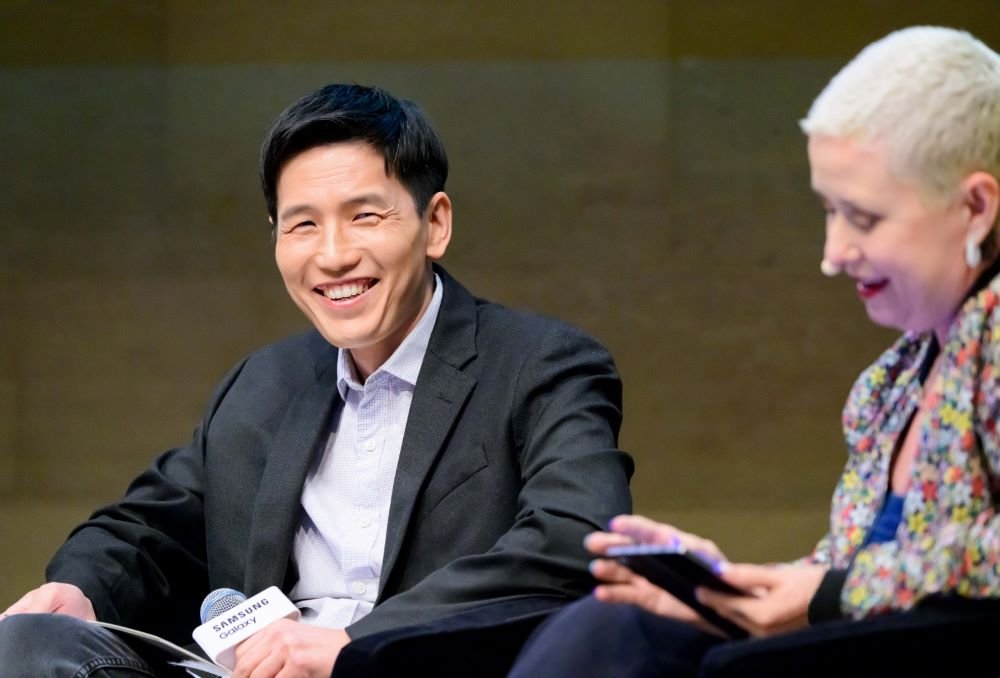

▲ (From top to bottom) Daehyun Kim from Samsung Electronics and Don McGuire from Qualcomm Technologies
In addition, the panelists looked at the role of mobile AI in stimulating creativity and improving productivity. Daehyun Kim, Executive Vice President of the Global AI Center, Samsung Research at Samsung Electronics, pointed to the study as proof that AI will unlock people’s creativity.
“Frequent AI users are two times more likely to express themselves creatively,” he said. “With all this AI technology, we’re making a meaningful difference in people’s lives.”
Don McGuire, Senior Vice President and Chief Marketing Officer of Qualcomm Technologies, weighed in on how the findings signal where AI is headed — moving beyond “prompt and response” functions.
“We’re seeing AI transition beyond novelty to be truly useful,” he said. “AI has to become more suggestive and anticipatory. Samsung has perfected this with some of the features launched on Galaxy AI.”
Mobile AI Innovation Driven by Open Collaboration
Collaboration emerged as one of the conversation’s biggest themes. Through open collaboration with Google, Qualcomm Technologies and others, Samsung is providing state-of-the-art AI-based user experiences.

▲ Jenny Blackburn from Google
“The launch of Circle to Search with the Galaxy S24 series was such a canonical example of the collaboration between Google and Samsung,” said Jenny Blackburn, Vice President of User Experience for Gemini Experiences and Google Assistant at Google. “It took a while for us to align on how we introduce that feature — to create something that works for everyone across different devices in a range of situations.”
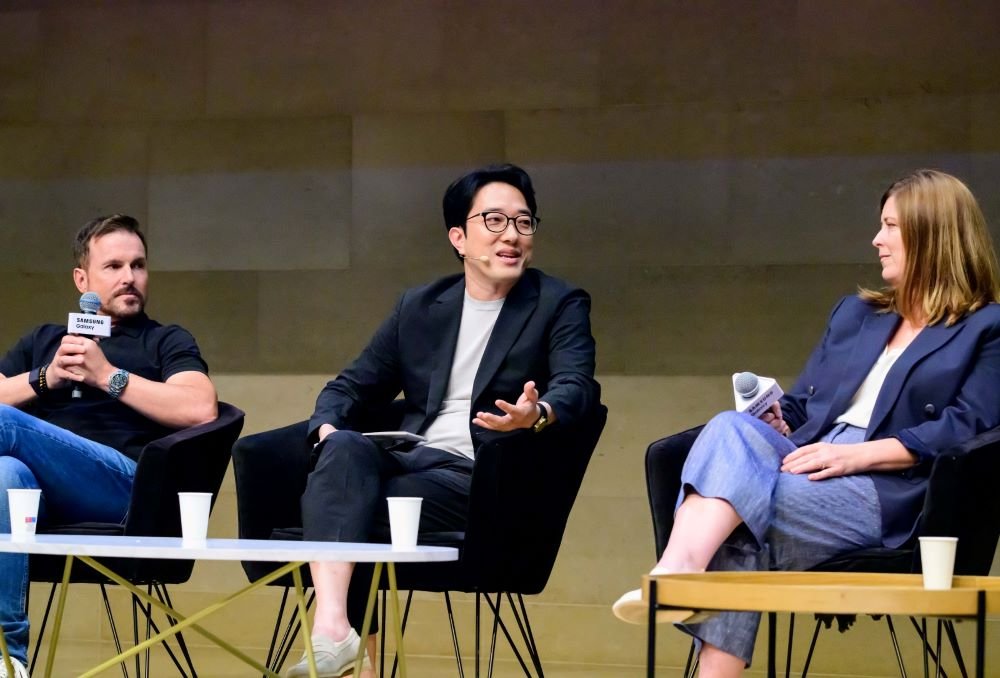
▲ (From left to right) Don McGuire from Qualcomm Technologies, Won-joon Choi from Samsung Electronics and Jenny Blackburn from Google
The hybrid AI approach that Galaxy AI adopted became another focal point of the discussion.
“Years from now, the hybrid approach to mobile AI will be considered the only approach to mobile AI,” said Kim. “Hybrid AI combines the responsiveness of on-device AI with the vast resources and experiences powered by cloud-based AI.”
Although Samsung has carefully developed its own generative AI model, the company strives to innovate and collaborate with the goal of developing human-centric AI.
“The scaling of AI will need to be hybrid for many practical reasons but also from a user experience perspective,” said McGuire. “We’re committed to working with Samsung, Google and others to provide strong on-device AI and cloud-based AI together.”
Expanding AI in a Safe and Inclusive Way
Finally, the panelists addressed the need to promote responsible innovation and inclusive AI development.
“Regulation is still working to fully catch up with the speed of AI innovation,” said Lucia Russo, Economist and Policy Analyst in the Artificial Intelligence (AI) Unit, Digital Economy Policy Division at OECD. “We want to encourage innovation but not at the cost of ethics or privacy.”
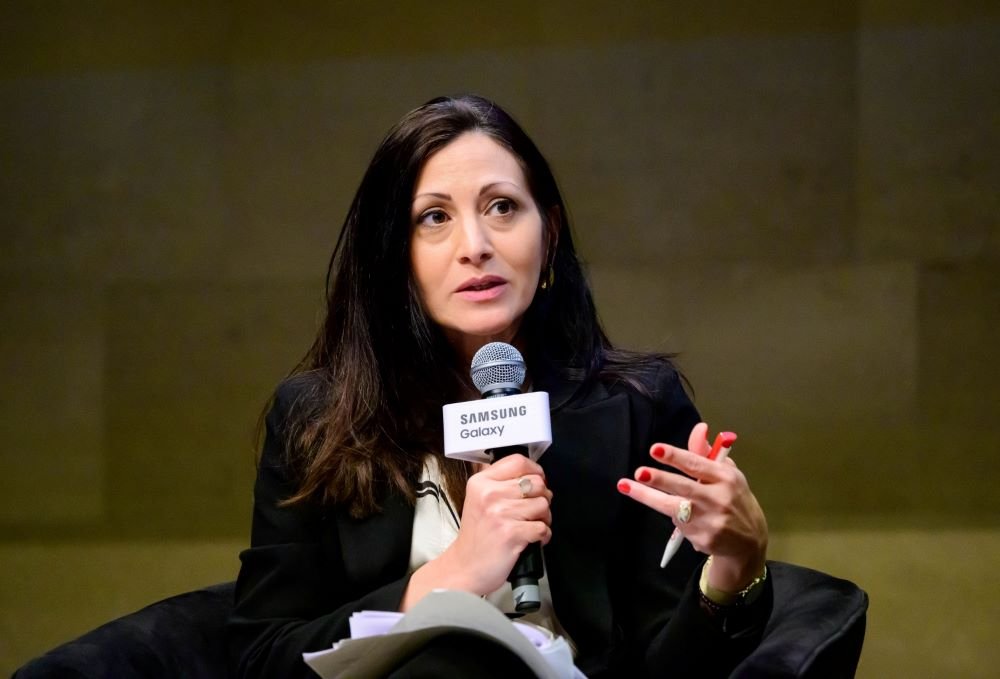
▲ Lucia Russo from OECD
“Privacy is the most important thing in this hyperconnected era. We aim to provide innovation and safety under three core principles — fairness, transparency and accountability,” said Kim. “With the Galaxy AI Dashboard, users can choose cloud-based services or have some features operate entirely on-device.”
“In the near future, AI will be multi-modal to process various types of input including text, images, audio, and video. At the same time, AI will become contextual to grasp the situation at hand,” he continued. “Providing users with choice and control is a constant consideration in mobile AI innovation.”
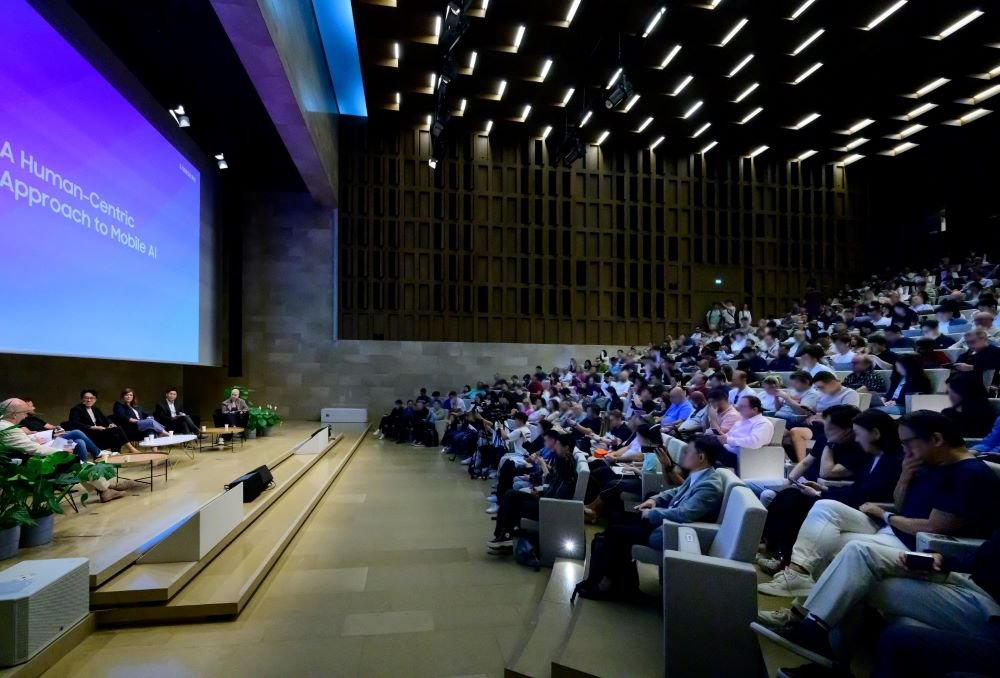
The first AI media event for Galaxy, Salon d’AI demonstrated how Samsung is moving beyond technological innovation in its AI development efforts by improving quality of life. In its pursuit of developing AI for all, Samsung looks forward to opening new opportunities through AI — with an eye on enhanced security and open collaboration.
This article was first published at Source link . You can check them out for other stuffs
